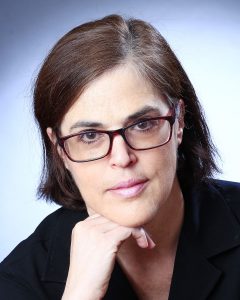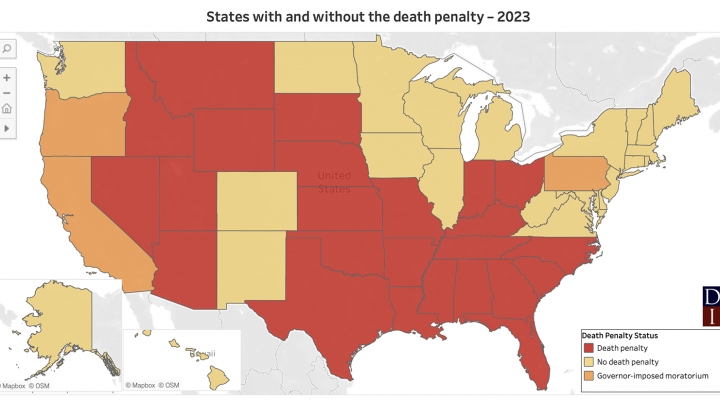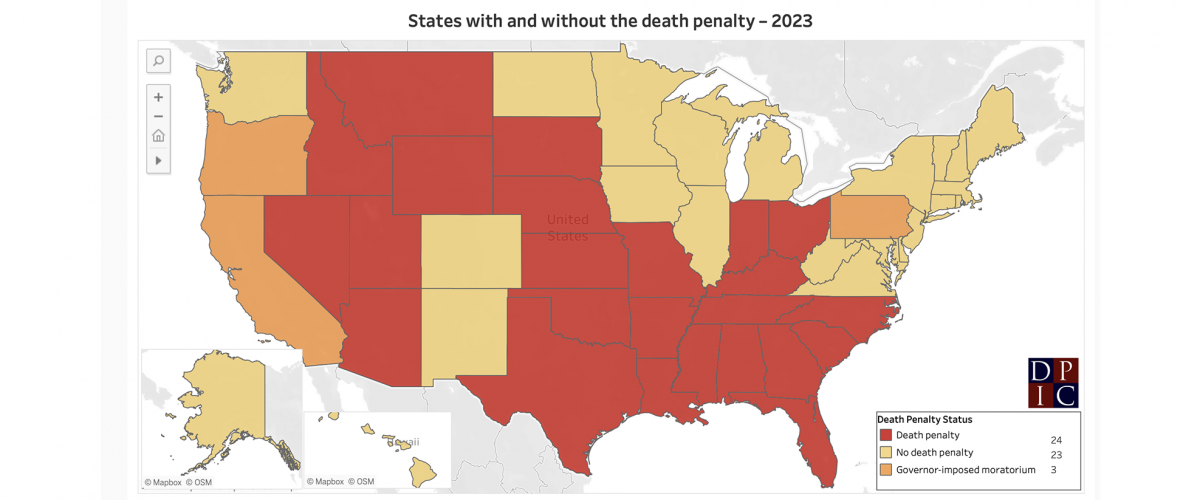America’s anti-capital punishment movement is growing in political, religious and racial diversity even as the nation continues to fracture along partisan lines, a leading death penalty abolitionist said.
“It does feel hopeful to work on this issue because we work with conservatives, progressives, Black Lives Matter, evangelicals and Catholics,” said Laura Porter, executive director of the Eighth Amendment Project.

Laura Porter
She spoke during a Jun 20 “In the Movement” webinar hosted by Equal Justice USA’s Evangelical Network.
Another hopeful sign is the courage coalition members, from both left and right, are showing in standing up to get-tough-on-crime rhetoric in their states. They also are countering those who believe comparing modern-day executions to lynching is merely being “woke,” Porter said.
“There is a hunger and a desire to understand our history and (to) use history to inform us on our decisions today. And this history of slavery, racial terror, lynching and the death penalty are so directly connected.”
Mass incarceration is the beginning of the problem, explained Sam Heath of EJUSA. “There are about 2 million individuals in jails and prisons across our country right now. We also don’t want to forget about the additional 3.7 million who are on probation or parole. So, this is a massive system we’re talking about — in the millions.”
Within that system, about 2,400 inmates currently live on Death Row across the United States, he added. More than 190 Death Row inmates have been exonerated in recent years, but executions are continuing.
Not all states are equal in their participation in this deadly business, Heath said. “About 80% of executions are in what people often call the Bible Belt, which is noteworthy. But what’s even more noteworthy is that’s the same statistic when we look at the history of lynching within our country. And keep in mind that about 41% of those who are on Death Row are people who are Black. And our national population for people who are Black is only 13%.”
“About 41% of those who are on Death Row are people who are Black. And our national population for people who are Black is only 13%.”
Those and other failings of the death penalty system are coalescing groups from a broad spectrum of ideological perspectives, Porter said. “We have a very diverse coalition of people who are coming to this issue and saying this isn’t worth it anymore and it’s not working.”
Theologically the range is just as broad, she said. “That particularly increases from people who come from a pro-life perspective, people who come from a redemption perspective, people who come from a perspective that they don’t trust government to fix a pothole, so we don’t trust government to take a life. And with this diverse group of folks who are now coming together and saying this isn’t working, they’re less impacted by the fear mongering that goes up and down in politics.”
And the movement has chalked up some recent victories, she added. The state of Washington abolished capital punishment in 2018, followed by New Hampshire in 2019, Colorado in 2020 and Virginia in 2021.
“Moving forward, we now have 27 states with the death penalty, so we’re almost getting to the halfway mark of states ending the death penalty. Another sign of movement is the majority of states that have the death penalty are barely using it at all. New death sentences are at an all-time low. Executions have also been reduced over the last two decades,” she said.
The Death Penalty Information Center’s 2022 death penalty review reported eight straight years with fewer than 30 executions and fewer than 50 new capital sentencings.
Ohio is currently witnessing a robust anti-death penalty campaign led by a broad coalition of religious and political groups and a 60% statewide approval rating for abolishing capital punishment.
“This shows this is not a red issue or a blue issue, it is an everyone issue.”
“This shows this is not a red issue or a blue issue, it is an everyone issue,” Porter said.
What’s drawing many to the struggle is a general agreement that the death penalty is simply broken, she said. “Sometimes it’s biased and unfair in terms of who is chosen to get a death sentence. And on top of all that, we’re putting victims and family members through decades of uncertainty and causing harm through the very process of seeking a death sentence. When you put all those together and realize we’re also spending a lot of money on a miniscule number of cases, it just doesn’t make any sense.”
There are those, too, who are concerned about executing the falsely accused.
There’s also a growing awareness that capital punishment does not deter crime and that executions never can be carried out humanely, Porter said. “Lethal injection was originally intended to be a more humane way of killing people. But the process and how it’s played out has been the exact opposite of that and has led to suffocation and trauma during the execution process.”
Related articles:
These Christians are praying for an end to the death penalty
He was wrongly put on Death Row and believes you could be too
Her ‘Damascus Road’ led to campaign against the death penalty
How I came to oppose the death penalty | Opinion by Stephen Reeves
Image of the cross led him to oppose death penalty
Momentum is building to stop an execution in Oklahoma


